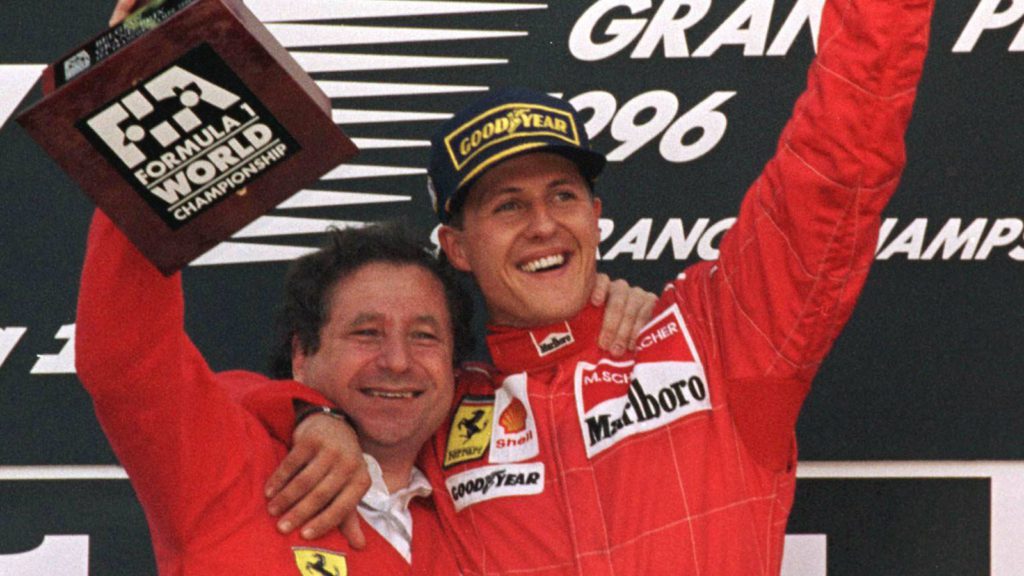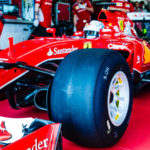With youth unemployment above 60 percent, South Africa is betting on digital skills to drive inclusive growth. Here is how MICT SETA is positioning the next generation for the Fourth Industrial Revolution.
Michael Schumacher: The real King of Spa?

The Formula One summer break is in full swing, featuring a three week break from the German Grand Prix to the upcoming Belgian Grand Prix at Spa-Francorchamps.
The Belgian circuit is widely considered to be one of the greatest racetracks in the world, offering drastic elevation changes, iconic corners (Eau Rouge/Radillon), high-speed sections and notoriously tricky weather.
Winning here is thus considered a badge of honour compared to almost all the other races on the calendar – only Monaco can possibly compare.
In terms of race victories, Michael Schumacher can stake a claim to being the King of Spa, at six victories. But wins don’t tell the whole story…
Schumacher’s blistering debut
The 1991 Belgian Grand Prix holds a special place in F1 history, marking the debut of Schumacher. The German swapped seats with Bertrand Gerchot, who was in a UK prison for spraying CS gas at a cab driver.
The young charge, fresh off drives in German Formula 3 and sportscar racing, managed to qualify a stunning seventh for Jordan – teammate Andrea de Cesaris lined up eleventh. Unfortunately, Schumacher’s race was over just a few hundred metres in, having suffered a clutch failure.
The weekend left an impression on F1 insiders, team bosses, journalists and fans alike. Even de Cesaris couldn’t believe Schumacher’s pace after just a few laps, having never raced at the track before.
“When you’ve never driven an F1 car before and after two laps you’re taking Eau Rouge flat, well… I couldn’t believe it,” de Cesaris was quoted as saying by ESPN F1.
“I’d never met him before we arrived at the circuit. Straight away he was as quick as me. My engineer, Gary Anderson, came to me and said: ‘Look, Michael is taking Blanchimont flat and you’re not. You have to take this corner flat’. For me it was a very demanding weekend!”
Unfortunately for Jordan, they didn’t have a contract with Schumacher, allowing Benetton to swoop in and sign Schumacher up for the very next race at Monza.
Schumi’s first victory
The 1992 running of the Belgian Grand Prix saw Schumacher win his first F1 race ever. It was no small feat either, with a field featuring Ayrton Senna, the technologically advanced Williams cars of Nigel Mansell and Riccardo Patrese, Karl Wendlinger, Mika Hakkinen, Jean Alesi and Gerhard Berger.
In what was a sign of things to come, Schumi’s victory came as a result of (mostly) keeping the car on track and clever strategy in changing conditions, switching to slick tyres at the right moment.
Schumacher would finish the 1992 season in third place, having accrued eight podium positions in total, including a third place at Hockenheim.
Three in a row
Schumi’s record at Spa in the 1990s saw him win win three on the trot from 1995 to 1997.
In 1995, the Benetton man would take victory from Damon Hill in a battle that saw Schumacher aggressively defend against Hill, earning the German a one race suspended ban. But the fact that Schumacher fought his way through the field from 16th was an amazing feat.
The 1996 victory was arguably just as sweet, given the fact that that year’s Ferrari was an unreliable dog of a car in comparison to the sublime Williams FW18 of Hill and Jacques Villeneuve. The 1997 running saw Schumacher trounce the competition in the wet, making up over five seconds in a single lap.
Utter chaos in 1998
The start to the 1998 Belgian Grand Prix saw one of the most expensive car crashes in motorsport history, as thirteen cars were involved in a snarl-up after La Source.
Following the restart, Schumacher was on course to deliver a similar performance to 1997, until the infamous collision with David Coulthard, as Schumi tried to lap the Scot. A furious Schumi stormed to the McLaren pits, as mechanics sought to separate the two men.
In a 2003 interview, Coulthard took responsibility for the accident, saying: “The reality is that I lifted to let him pass me, but I lifted in heavy spray on the racing line. You should never do that. I would never do that now. In 1998, I didn’t have the experience and the knowledge, and I had never had someone run into the back of me. And because someone pushes you, you react. So you act as though ‘I didn’t do that’.”
The accident played straight into the hands of Jordan, as Damon Hill won the chaotic race ahead of teammate Ralf Schumacher. At least one Schumacher was on the podium…
A long wait until the next Spa win
Schumacher missed the 1999 race due to a broken leg in Silverstone, but came short of the mark in 2000, courtesy of the year’s bravest overtake by Mika Hakkinen. The move, which took place on the Kemmel Straight, saw Hakkinen and Schumacher go either side of BAR’s Ricardo Zonta, who was being lapped at the time.
“I thought to myself, ‘Whichever way Michael goes, I’ll go the other.’ He went to the left, so I went to the right, braking as late as I dared, off-line, on a still-damp track, at 300km/h. As I turned in, I had done it; I had passed Michael; I had retaken the lead,” Hakkinen recalled in a blog post last year, saying that he had taken the daunting Eau Rouge corner flat in the wet.
The 2001 race played host to a serious accident, as Luciano Burti’s Prost and Eddie Irvine’s Jaguar had a high-speed collision that saw Burti’s car going under the barriers. Burti would miss the rest of the season, his helmet (per Burti’s Instagram) taking the brunt of the impact. The restart also saw saw Ralf Schumacher being left up on his jacks.
Schumacher managed to win by 10 seconds from David Coulthard, the 52nd win of his career and beating the all-time win record set by Alain Prost.
The final win at Spa for Michael
Schumacher’s last win at Spa took place in 2002, as the dominant F2002 stormed to victory with the second Ferrari of Rubens Barrichello not far behind.
The win marked the tenth win for Schumacher in the season, and the team would win 15 races overall. It makes for an impressive record, even today, with 17 races on the 2001 calendar. By comparison, the 2015 F1 season saw Mercedes claim 16 wins out of 19 races.
Schumacher would fail to net any more wins at Belgium, as Kimi Raikkonen would win three races in a row in 2004, 2005 and 2007 (the race wasn’t held in 2003 and 2006).
Featured image: Scuderia Ferrari F1 website

